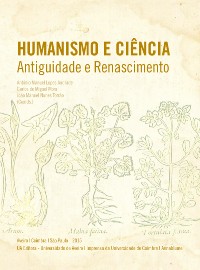Please use this identifier to cite or link to this item:
https://hdl.handle.net/10316.2/35707| Title: | Amatus Lusitanus e Didaco Pirro: due ebrei portoghesi e cerchia umanistica di Dubrovnik | Authors: | Lupis, Vinicije B. | Keywords: | Amatus Lusitanus;Didacus Pyrrhus Lusitanus;Dubrovnik;Toma Budislavić;Medicine;Amatus Lusitanus;Didaco Pirro;Dubrovnik;Toma Budislavić;Medicina | Issue Date: | 2015 | Publisher: | UA Editora - Universidade de Aveiro Imprensa da Universidade de Coimbra Annablume |
Journal: | http://hdl.handle.net/10316.2/35685 | Abstract: | Amatus Lusitanus, physician and medical writer, and Didacus Pyrrhus Lusitanus (Didaco Pirro or
Didak Pir) were two interesting personalities of the humanistic period. They have linked Croatia
and Portugal in the sixteenth century. Dubrovnik was at the time extremely important cultural and
economic center of this part of Europe. In spring of 1556 Amatus arrived in the city of Dubrovnik,
where he remained for two years. He looked after many patricians and plebeians of Dubrovnik
and had patients from the Ottoman Empire. The most important work of Amatus was Curationum
Medicinalium Centuriae, with 700 most interesting stories of his practice with interpretations
(scholia). For us the most interesting part of this book is sixth centurion (Ragusina), with 100
instances of the practice of Amatus in Dubrovnik because it gives us an excellent picture of the
cultural life and health in Dubrovnik Renaissance. Among other patients of Amatus in Dubrovnik
was also the patrician and poet who suffered from syphilis - Sabo Bobaljević Mišetić Glušac
(Dubrovnik, 1529/1530 - Dubrovnik, 1585). His Italian Canzoniere was published posthumously
in Venice in 1589. He also reworked Tasso’s Amor fuggitivo in Croatian. Didak Pir was another
important person of Portuguese-Croatian humanistic relations. At his new home - Dubrovnik,
Didacus Pyrrhus Lusitanus thanked in his letters (written in hexameter verse) to Paulo Manutius.
In the same spirit he wrote the song about most important families of Dubrovnik (De illustribus
familiis quae hodie Rhacusae exstant, 1582), for which he was awarded by the Dubrovnik Senate. Amatus Lusitanus, medico e medico scrittore, e Didacus Pyrrhus Lusitanus (Diogo Pires, Didaco Pirro o Didak Pir), due personalità interessanti del periodo umanistico, nel xvi secolo hanno collegato la Croazia e il Portogallo. Allora Dubrovnik era un centro culturale ed economico estremamente importante di questa zona europea. Nella primavera dell’anno 1556 Amatus arrivò nella città di Dubrovnik, dove rimase per due anni. Curava molti patrizi e plebei di Dubrovnik e aveva pazienti dall’Impero Ottomano. L’opera più importante di Amatus e Curationum Medicinalium Centuriae, cioè le 700 storie più interessanti accadutegli nell’ambito del suo mestiere e seguite da personali interpretazioni (scholia). Per noi, la storia più interessante è la sesta centuria (Ragusina), pubblicata a Lyon nel 1564, contenente 100 casi di pratica di Amatus a Dubrovnik, fornisce un quadro straordinario sulla vita culturale e sanitaria della Dubrovnik rinascimentale. Tra i pazienti di Amatus a Dubrovnik vi era anche Sabo Bobaljević Mišetić Glušac (Dubrovnik, 1529/1530 – Ragusa, 1585), un patrizio e poeta malato di sifilide. Tra le sue opere il Canzoniere italiano, pubblicato postumo a Venezia nel 1589, e la rielaborazione in croato dell’Amor fuggitivo di Tasso. Tramite un lungo soggiorno e le opere letterarie, Didak Pir lasciò un segno incancellabile nella città ragusea. Didak Pir ha ringraziato la sua nuova patria – Dubrovnik - nelle lettere scritte in esametro a Paolo Manuzio, figlio del famoso editore Aldo (Ad Paulum, 1563). Con lo stesso spirito stese la “canzone delle famiglie importanti di Dubrovnik d’oggi” (De illustribus familiis quae hodie Rhacusae exstant, 1582), per la quale fu insignito dal Senato di Dubrovnik. |
URI: | https://hdl.handle.net/10316.2/35707 | ISBN: | 978-989-26-0941-6 (PDF) | DOI: | 10.14195/978-989-26-0941-6_21 | Rights: | open access |
| Appears in Collections: | Humanismo e Ciência: Antiguidade e Renascimento |
Files in This Item:
| File | Description | Size | Format | |
|---|---|---|---|---|
| humanismo_e_ciencia_-_2.12.pdf | 7.13 MB | Adobe PDF |  |
Items in DSpace are protected by copyright, with all rights reserved, unless otherwise indicated.
